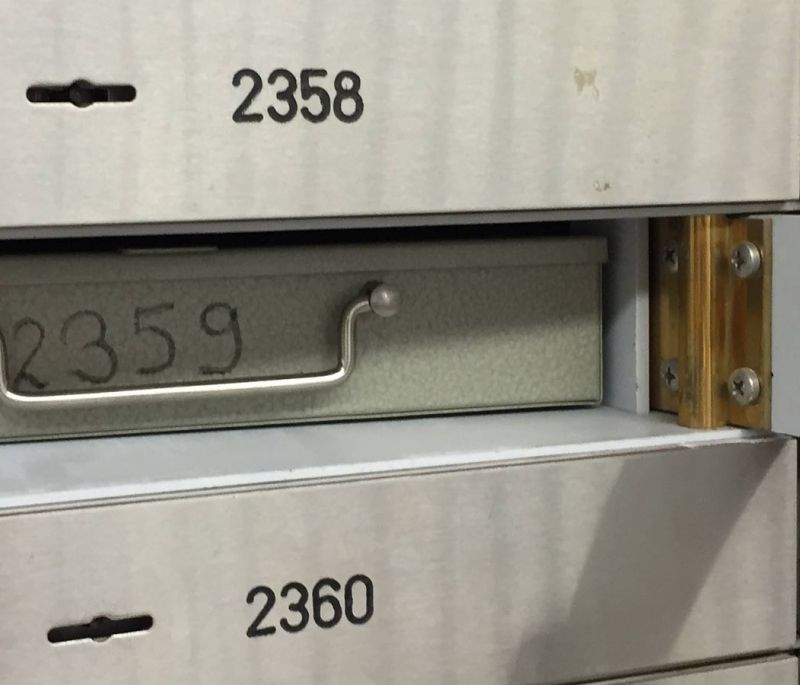
Safety Deposit Boxes & Probates
Safety deposit boxes figure in probates in at least two ways:
-
Sometimes when a person dies, a will cannot be found. Or, a copy of the will is found, but the original can't be located. (Because one method of revoking a will is by destroying it, the existence of the original will, rather than a copy can be important.)
The Nevada law allows for an Ex Parte Court Order requiring an inventory of a safety deposit box and the making of an inventory of its contents. If there is an original will in the box, the party requesting the inventory can take the will and is then obligated to file it with the Court.
The inventory of the safety deposit box is by two bank employees with the person petitioning for the inventory (and/or their attorney) present. The bank employees are generally not happy to have to take time to do this and, because they are not experts in jewelry, coins or other contents, their inventory is usually very general. For example, the inventory might say, "57 grey/silver metal coins" when the coins are pre-1965 U.S. silver coins and anyone with an interest in the estate would like more specific information, such as "one 1932S quarter, excellent condition." Likewise, the inventory will say, "yellow metal ring with clear stone," instead of "gold ring with 1 carat flawless diamond."
In Clark County whose major city is Las Vegas there is no filing fee to get an Ex Parte Order allowing a safe deposit box inventory. In other counties there often is. For example, Carson City County requires payment of the full probate filing fee for an Ex Parte Order regarding the safe deposit box.
-
If two people are authorized to access a safety deposit box there is a rebuttable presumption that the property in the box is jointly owned by the two of them with right of survivorship. In other words, Helen and Mary are both authorized to access a box and Helen dies first, so there is a presumption that Mary now owns the contents of the box.
If a couple does a trust leaving everything to their adult children and names one of the children as Successor Trustee and they have a safety deposit box, we recommend that they put the adult child as an owner of the safety deposit box. That way, when they are both gone the adult child can easily access the box.
But, what if, in this example, Helen owns everything in the box, pays the yearly rental, and has just asked Mary, a friend, as a favor, to be authorized to access the box in case Helen is too sick to go to the bank but wants Mary to get something for her from the box. An agreement of that sort should be put in writing signed by both and given to both parties' heirs. Then if Helen dies first, Helen's heirs will have proof that the contents of the box belongs to them, not to Mary.
